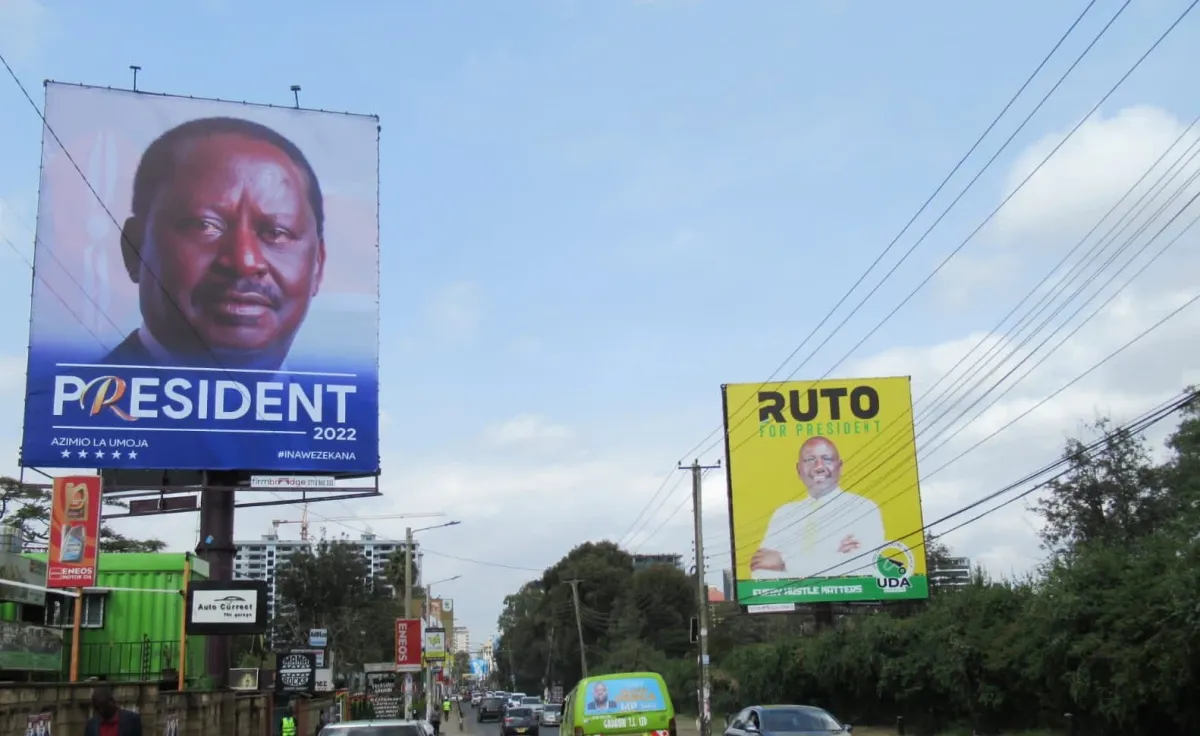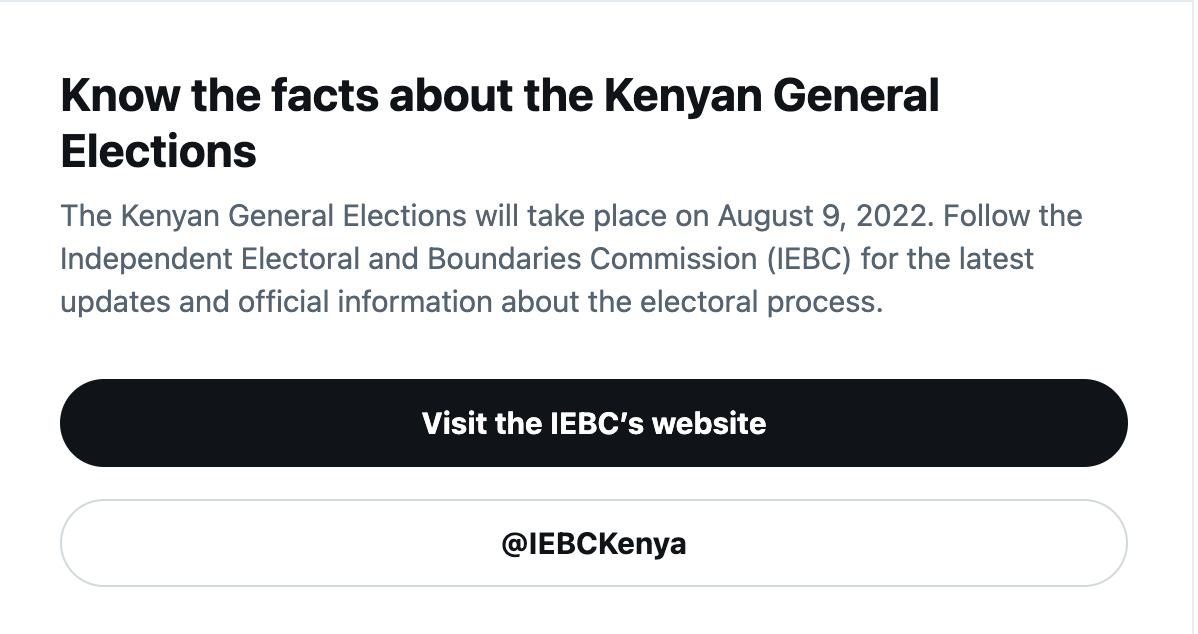How Meta, Twitter and TikTok are preparing for the 2022 Kenyan General Elections
Social media companies including Facebook, Twitter and TikTok have been modifying their platforms to avoid the spread of misinformation.

Next Tuesday (August 9, 2022), Kenyans will head to the polls to elect a new President, members of the National Assembly, and members of the Kenyan Senate. As well as, local county governors and candidates for the country's 47 county assemblies.
In a country with over 23.35 million active internet users—among which 11.75 million social media users, top social media companies operating in the country and ensuring that their platforms should enable a credible election, free of misinformation and hate speech that will result in political violence.
TikTok launched an in-app guide for Kenyan users to enable access to factual and authoritative information. Even though TikTok’s policy is against hate speech and sharing of discriminatory, inciteful, and synthetic content, Mozilla Foundation has previously reported that Tiktok was been used to fuel misinformation and political tension.
In July, Mercy Ndegwa, Meta's Director of Public Policy East & Horn of Africa revealed that the social media giant is working towards combating misinformation during the elections. Ndegwa also said that Meta is ensuring that political advertising remains transparent.
Related Article: Why Facebook Inc. is now Meta
Despite Meta's effort, Kenya's ethnic cohesion watchdog, the National Cohesion and Integration Commission (NCIC) directed Facebook to stop the spread of hate speech on its platform within seven days or face suspension in the East African country.
However, Joe Mucheru said that he is "not clear what legal framework NCIC plans to use to suspend Facebook". According to him, the Kenyan government has no plan to shut down the internet during the elections.
Twitter partners Africa Check curb misinformation during the elections
In a more recent development, Twitter has announced that it has partnered with Africa Check to elevate credible information before/during/after the elections.
"We are pleased to collaborate with Twitter as part of our election work in Kenya. The collaboration will allow us to address dis- and misinformation by fact-checking claims and identifying potential misinformation," Africa Check said in a statement shared with Benjamindada.com.
Twitter also said that it has worked with Kenyan partner organisations on verifying accounts of government agencies, candidates, political parties, non-governmental organisations (NGOs), news organisations and content creators.
"The blue Verified badge on Twitter lets people know that an account of public interest is authentic and notable - giving people on Twitter more context about who they’re having conversations with so they can determine the way in which they engage with a certain account," Emmanuel Lubanzadio, Twitter's Head of Public Policy, Sub-Saharan Africa stated.

In collaboration with Independent Electoral and Boundaries Commission (IEBC), Twitter has also launched an election prompt in English and Swahili. Lubanzadio said that "the search prompt is a notification service that directs people in Kenya to the Independent Electoral and Boundaries Commission (IEBC’s) website where Kenyans will be able to access credible information about the elections when searching for keywords on Twitter, associated with the Kenyan General Election."






